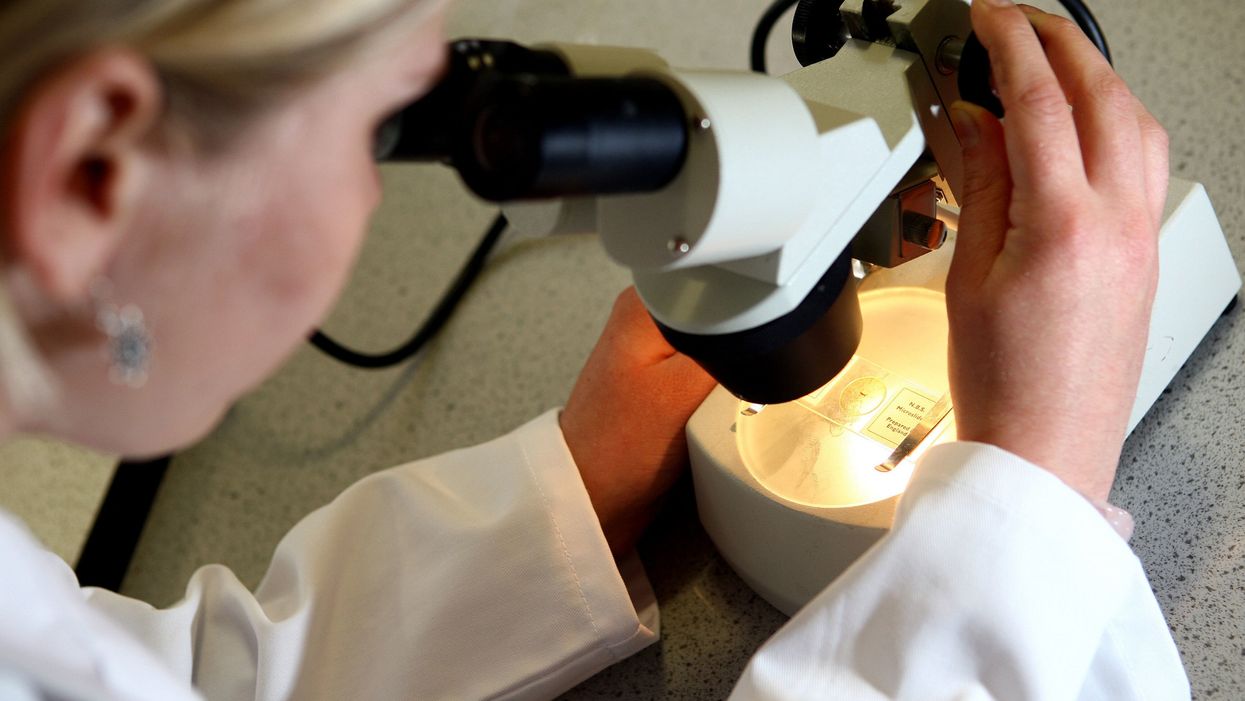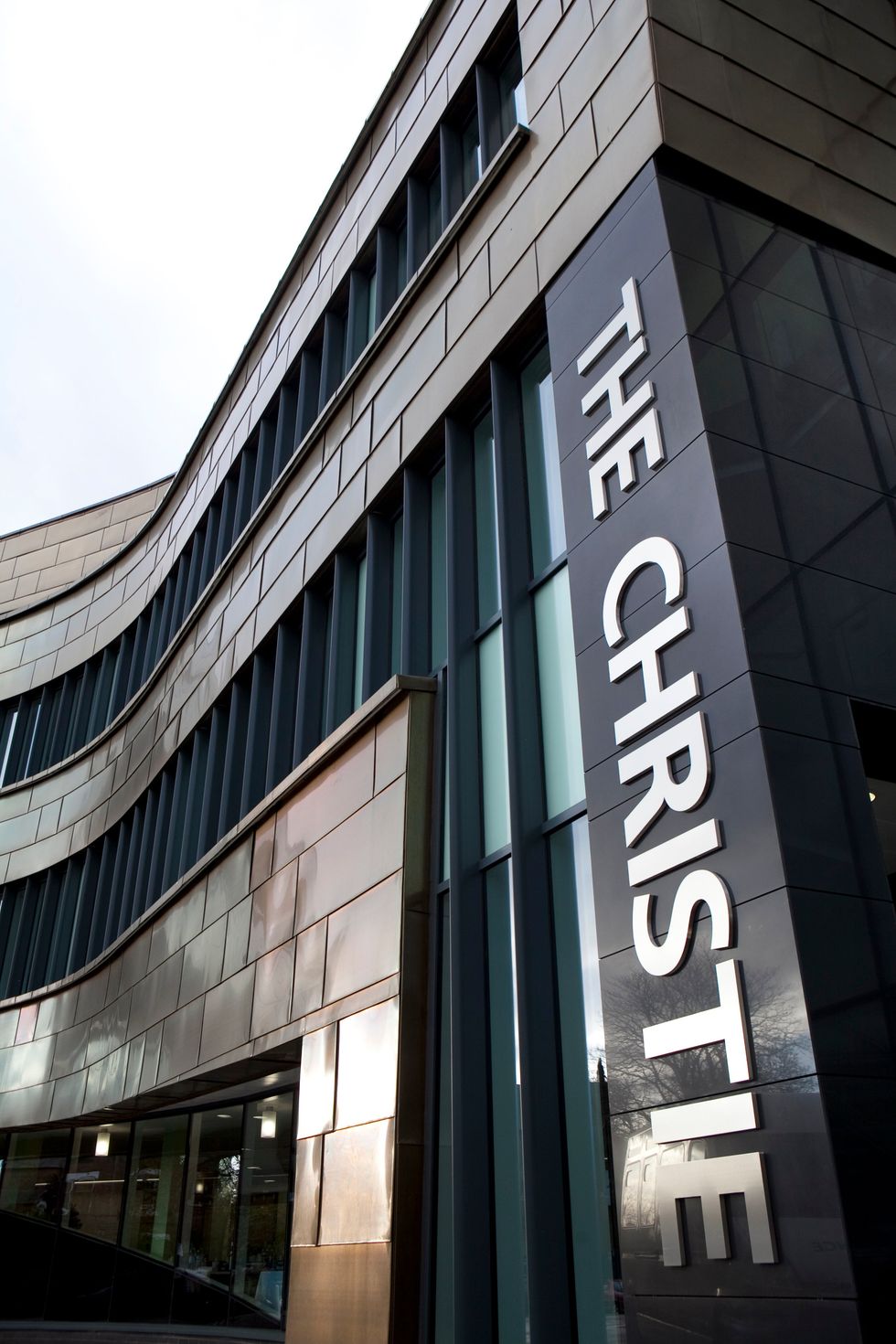
Scientists have made a discovery that could lead to an increase in the number of people surviving cancer.
A research team at the Christie NHS Foundation Trust in Manchester found that patients whose tumours attract immune cells – that then clone themselves – respond better to immunotherapy.
Immunotherapy helps the patient’s own body find and destroy cancer cells and has cured some patients with advanced cancer.
The team hopes their discovery could pave the way for treatments that increase the number of immune cells, called T cells so that immunotherapy works for a much larger group of patients.
At present, it can be difficult to predict which patients will respond to immunotherapy and who will see little or no response.
Cancer cells are very similar to our own body cells, but they differ because something goes wrong, they have broken pieces, and the immune system can recognise these broken pieces
Dr Sara ValpioneConsultant oncologist, Dr Sara Valpione, 38, who led the research published in the journal Nature Communications, said that when T cells replicate and are found in tumours, it suggests the T cells have tried to fight the cancer and lost.
But when these patients are given immunotherapy, they respond better.
She told the PA news agency: “If you imagine cancer being like a war zone, there are the evil guys – the cancer cells – and the good fighters, which is our immune system.
“I’m focusing on a particular kind of soldier, which is the T cells.
“Cancer cells are very similar to our own body cells, but they differ because something goes wrong, they have broken pieces, and the immune system can recognise these broken pieces inside the cancer cells.
“The beauty of T cells is that they are very highly specialised to recognise broken things, and each single cell can recognise one specific broken thing.
“So, when one of these soldiers recognises a cancer cell, the first thing they do is to clone themselves, to multiply, to create a small army to recognise the broken piece and kill those cancer cells.
“The question behind this work was – if we see that there are already these squads of identical T cells, does it mean that a fight has already started?
“And we saw that when there are these small squads of identical T cells, the patients have a higher chance of responding to immunotherapy, which is really a breakthrough treatment.
“The problem we have had is that we don’t know which patients have cancer that is going to respond to immunotherapy, and which patients will not respond and are receiving potentially very toxic drugs.”
The study included almost 200 patient samples to see what was going on in cells.
Dr Valpione added: “We found that if you have a squad of T cells inside the tumour, the patient has a higher chance of responding to immunotherapy.
“It is something that a lot of people have been thinking about for a long time but nobody has proved it.
“I think this is an important piece of information that that will help us not only to understand the biology of cancer better but also to help clinicians understand which patients are the ideal candidates for these drugs.”
Asked how the presence of the T cells help immunotherapy to work, Dr Valpione said: “This is just my speculation, but I think that when the fight has already started but was not successful – because cancer cells are very sneaky and can put a sort of sleeping spell on the T cells so they cannot work properly – this creates conditions where immunotherapy works better because immunotherapy wakes up the immune cells.
“It releases the brakes that have been pushed by cancer cells.
“Our observations make perfect sense in this context… it is a working hypothesis.”
(The findings) add to our growing insight into how to better treat patients with immunotherapies, helping us predict who will respond more to those treatments
Michelle Mitchell, Cancer Research UKThe hope is that scientists can identify who will respond to treatments for all types of cancer.
They also want to look in the coming years at how a patient may gain more T cells to respond better to immunotherapy.
Dr Valpione said: “Maybe in five or 10 years we will have another drug or we will be able to perfect therapies where you infuse T cells, you infuse the soldiers, and maybe we will be able to perfect these soldiers.
“That is the dream.”
Dr Valpione has mostly used existing data collected from melanoma patients but the belief is the findings can be used across many other cancers involving immunotherapy.
Cancer Research UK’s chief executive, Michelle Mitchell, said: “These results are really encouraging to see.
“Immunotherapies are an incredibly important area of research with the potential to make a real difference to patients.
“While these findings are early research, they add to our growing insight into how to better treat patients with immunotherapies, helping us predict who will respond more to those treatments.”
The Christie research team also included Professor Paul Lorigan, Dr Avinash Gupta and Luca Campana and the team at the Cancer Research UK Manchester Institute.














